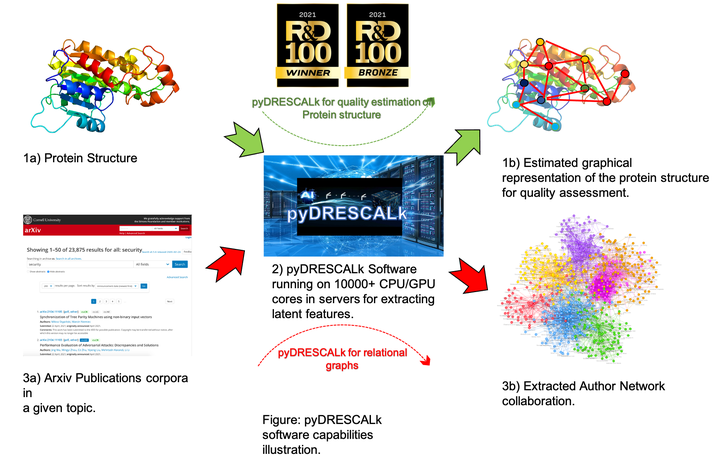
pyDRESCALk is a software package for applying non-negative RESCAL decomposition in a distributed fashion to large datasets. It can be utilized for decomposing relational datasets. It can minimize the difference between reconstructed data and the original data through Frobenius norm. Additionally, the Custom Clustering algorithm allows for automated determination for the number of Latent features. pyDRESCALk is developed as part of the R&D 100 award wining SmartTensors project.
BibTeX:
@software{pyDRESCALk,
author = {Bhattarai, Manish and
Kharat, Namita and
Skau, Erik and
Truong, Duc and
Eren, Maksim and
Rajopadhye, Sanjay and
Djidjev, Hristo and
Alexandrov, Boian},
title = {pyDRESCALk: Python Distributed Non Negative RESCAL decomposition with determination of latent features},
month = dec,
year = 2021,
publisher = {Zenodo},
version = {v1.0.0},
doi = {10.5281/zenodo.5758446},
url = {https://doi.org/10.5281/zenodo.5758446}
}
@article{vangara2021finding,
title={Finding the Number of Latent Topics With Semantic Non-Negative Matrix Factorization},
author={Vangara, Raviteja and Bhattarai, Manish and Skau, Erik and Chennupati, Gopinath and Djidjev, Hristo and Tierney, Tom and Smith, James P and Stanev, Valentin G and Alexandrov, Boian S},
journal={IEEE Access},
volume={9},
pages={117217--117231},
year={2021},
publisher={IEEE}
}